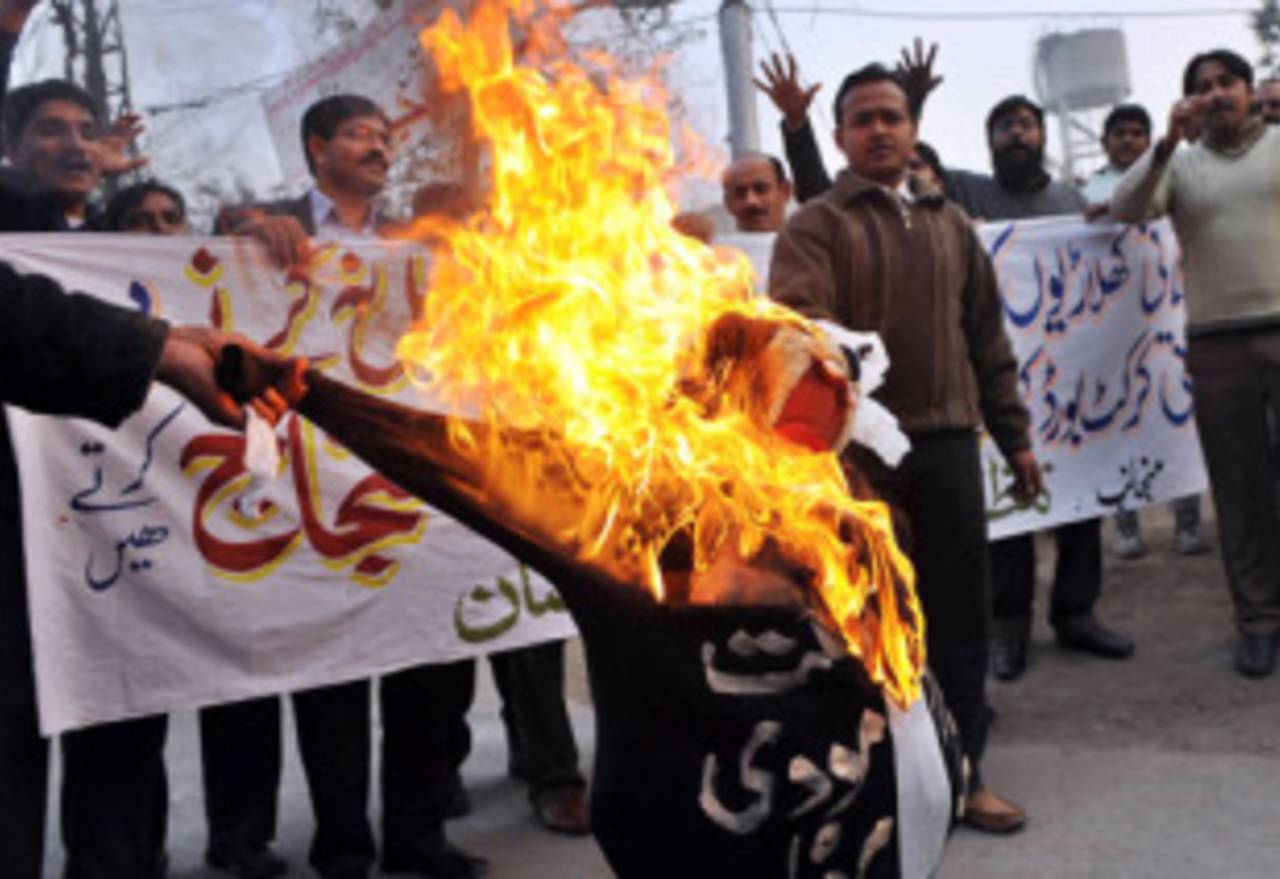There was a time not so long ago when your address defined which cricket matches you could see. As kids growing up in Hyderabad we were thankful for what we got; a three-day game sometimes, when to our great joy our school gave us a holiday to be able to go and watch. You had the radio, of course, but as I later discovered, when a commentator knows his audience cannot watch what he is describing, he takes the odd liberty!
Then television arrived and while that opened up a beautiful new world for us cricket watchers, you could only see games that were beamed into your country. Sometimes you only got the highlights but you were thankful for that. Our world was still bounded; what we saw was still controlled by someone else. Luckily, satellite television arrived and you could watch almost everything -provided, of course, you had the time. One constraint had been removed.
At the time we thought it was as good as it got. But this week I heard something that's got me all excited because it makes the viewer king, a notion that was ingrained in me when I began a career in broadcasting.
What the
IPL-Google deal does is make geographical boundaries irrelevant in the area of live sport. So my classmate in Japan, who was starved of his regular fix, can now watch a game in real time as long as he has a workable broadband line - a problem that, unlike me, he doesn't need to worry about.
It gets better. He can now access an online library free of cost. I recognised the value of that when I searched for
the amazing catch Manish Pandey took in the final of the Ranji Trophy (by the way, another example of a good pitch producing a good match). It was worth the search.
But far beyond allowing people to watch cricket free of cost, I think it will also lead to a democratisation of talent. If you are good, you can now prove it.
My classmate in Japan, who was starved of his regular fix, can now watch a game in real time as long as he has a workable broadband line - a problem that, unlike me, he doesn't need to worry about
Let me explain. When I was growing up, there was the sub-editor in a newspaper who could, if he chose to, deny you the opportunity of appearing in print. And if he was benevolent, he would let you through, but he could rewrite your article, even chop it and make it look quite different from what it was intended to be. The blog changed that; it gave talent the space it needed. You may not have had the reach but at least you had an outlet. It was empowering.
You can now do that with television content. With an online library you can edit footage, store it in the manner you want and show that you can be smarter than the guy who edits for television. Better still, you can mute the commentary and put on your own and judge for yourself whether you are indeed better than the guys on television you are stuck with. It won't surprise me at all if that does indeed happen, since some of the best analysis I have read on cricket comes from blogs intelligent people write. It is a revolution and it is round the corner.
The announcement came a day after the IPL franchises
chose to ignore cricketers from Pakistan. I was looking forward to watching some fine young men in action and these cricketers have a right to feel done in. The key question, though, is: done in by whom? The franchises have a right to select the team they want, even if it is not the best possible, because they have to wear many hats. They cannot alienate fans, they don't want to create a security issue, and they do not want any more uncertainty - part of the reason some fine Australian cricketers were turned down too.
I fear these players are being done in by the cage we are imprisoned in. We live in times of violence and hatred; there are many people who seek peace but equally some who seek to deny us what we thought was given. Sport cannot exist in isolation, cannot fly free from this cage of reality. We would love the two to be separated but that has never happened. In times of peace, or relative peace, we could produce the pathbreaking tours of
2004 and
2006. Now we are all pawns in the drama our subcontinent is enacting and the cricketers are merely more visible pawns. The conspiracy that Abdul Razzaq talks about is the reality of our times. The IPL will be poorer for the absence of some extraordinarily gifted cricketers, but this is just another victory for those that infect us with hatred. To believe there is a conspiracy against cricketers from Pakistan is wrong. It is the times we live in.
